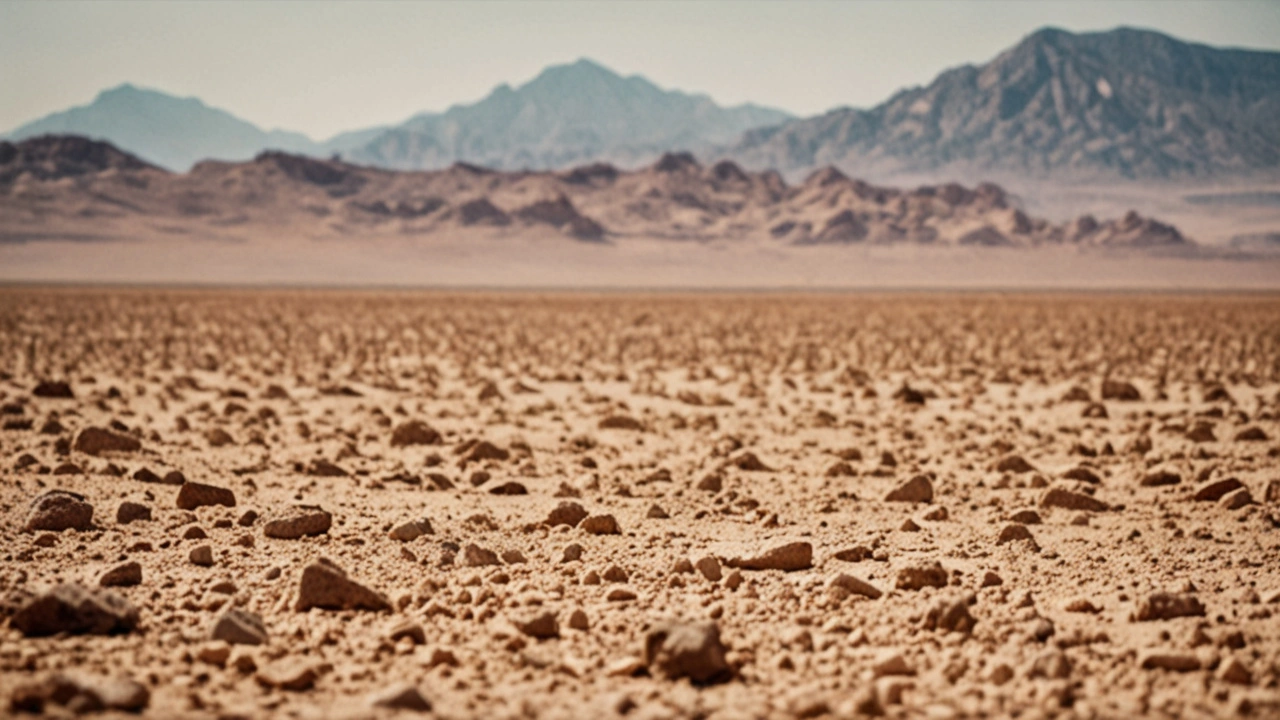Unprecedented Heat Wave Grips the United States
The United States is currently in the throes of an unrelenting heat wave that has not only shattered historical temperature records but also claimed multiple lives. This extreme weather phenomenon has gripped large swaths of the West, putting immense pressure on emergency services and highlighting the urgent need to address climate change.
Death Valley: A Gruesome Example of Extreme Heat
Death Valley, synonymous with high temperatures, has become one of the most talked-about areas amid this heat wave. Since July 4, the region has consistently recorded daily temperatures exceeding 125 degrees Fahrenheit. A tragic incident underscored the deadly nature of this heat when a motorcyclist lost their life while traversing the national park. The searing conditions made it extraordinarily difficult for emergency responders to reach the scene quickly, showcasing the life-threatening challenges posed by extreme heat.
Records Shattered Across Several States
Death Valley is not alone in grappling with unprecedented heat. Northern California, Phoenix, and Las Vegas have all reported new high-temperature records during this ongoing heat wave. In some cases, the mercury has soared past previous records by significant margins, leading to dangerous and even deadly conditions for residents and wildlife alike. Such record-breaking temperatures strain infrastructure, including the power grid, affecting millions of people who depend on air conditioning to stay safe and comfortable.
Heat Wave Reaches Higher Elevations
It's not just the usual hotspots feeling the heat; even higher elevations like Lake Tahoe have seen unprecedented temperature levels. Historically known for its cooler climate, Lake Tahoe has experienced soaring temperatures, further underscoring the unusual and widespread nature of this phenomenon. The broader impact on the environment, local economies, and daily life in these higher elevations is yet another concerning aspect of the current heat wave.
Forecasts and Future Concerns
Weather forecasts suggest that the situation may worsen before it improves. Meteorologists have predicted that temperatures in Furnace Creek, located within Death Valley, could reach a staggering 130 degrees Fahrenheit. Such extreme conditions are not just numbers on a thermometer but translate into very real and immediate threats to human health and safety.
Heat-Related Deaths and Health Risks
As the death toll from this heat wave continues to rise, it is increasingly clear that extreme heat is a significant public health issue. Heat-related illnesses and fatalities are becoming more common, with vulnerable populations such as the elderly, children, and those with preexisting health conditions being particularly at risk. Heatstroke, dehydration, and exacerbation of chronic illnesses are just some of the severe health consequences associated with these soaring temperatures.
Climate Change: The Elephant in the Room
While the immediate focus is understandably on mitigating the impacts of this current heat wave, it also serves as a stark reminder of the broader issue at hand: climate change. Scientists have long warned that global warming would result in more frequent and severe heat waves, and this current situation appears to be yet another validation of those predictions. Addressing climate change is no longer a distant, abstract concept but an urgent imperative that has real, tangible consequences for communities around the world.
Mitigation Efforts and Preparedness
Communities, local governments, and federal agencies are working tirelessly to respond to the current crisis. Efforts include setting up cooling centers, distributing water to those in need, and issuing advisories to help people protect themselves from the heat. However, these are short-term fixes. Long-term strategies need to be implemented to make communities more resilient to such extreme weather events. Urban planning, infrastructure development, and public health initiatives must all incorporate considerations for increasingly frequent and severe heat waves.
The Road Ahead
As the United States continues to grapple with this unprecedented heat wave, the importance of proactive measures becomes ever more apparent. From individual actions like staying hydrated and avoiding peak heat hours to larger policy changes aimed at tackling climate change, a multi-faceted approach is essential. Public awareness campaigns can also play a critical role in helping people understand the risks and take appropriate precautions. Investing in renewable energy, improving energy efficiency, and promoting sustainable practices are key steps toward mitigating the long-term impacts of climate change and preventing future heat waves of this magnitude.
The current heat wave is a stark reminder of the fragile balance we maintain with our environment. It underscores the urgency with which we must act to protect our planet and ourselves from the escalating impacts of climate change. While this heat wave will eventually pass, the lessons learned and the actions taken in response will shape our readiness for similar events in the future. It's a clarion call for immediate and sustained efforts to address one of the most pressing challenges of our time.

